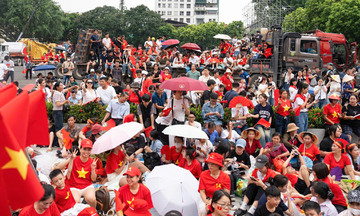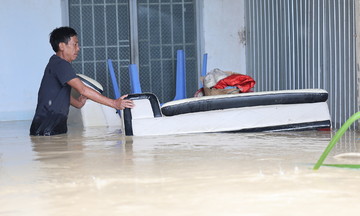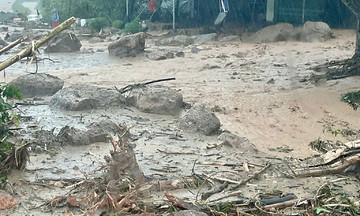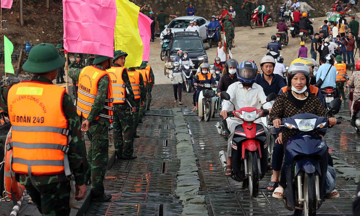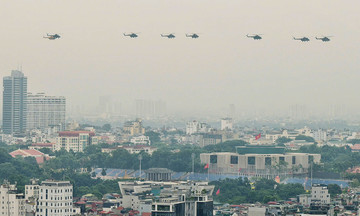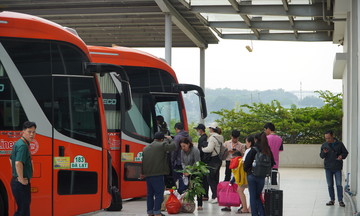According to Dao Vu Viet, deputy director of Thanh Hoa's Department of Construction, the north-south high-speed railway will traverse 95.33 km through 19 communes and wards in the province. The project requires over 570 hectares of land, including nearly 92 hectares of residential land and over 480 hectares of agricultural and other land.
Surveys show almost 4,000 households and over 30 agencies, organizations, and schools will be affected. To resettle residents whose residential land is acquired, Thanh Hoa's People's Committee (UBND) plans to build 39 resettlement areas covering nearly 300 hectares, at an estimated cost of 3.87 trillion VND.
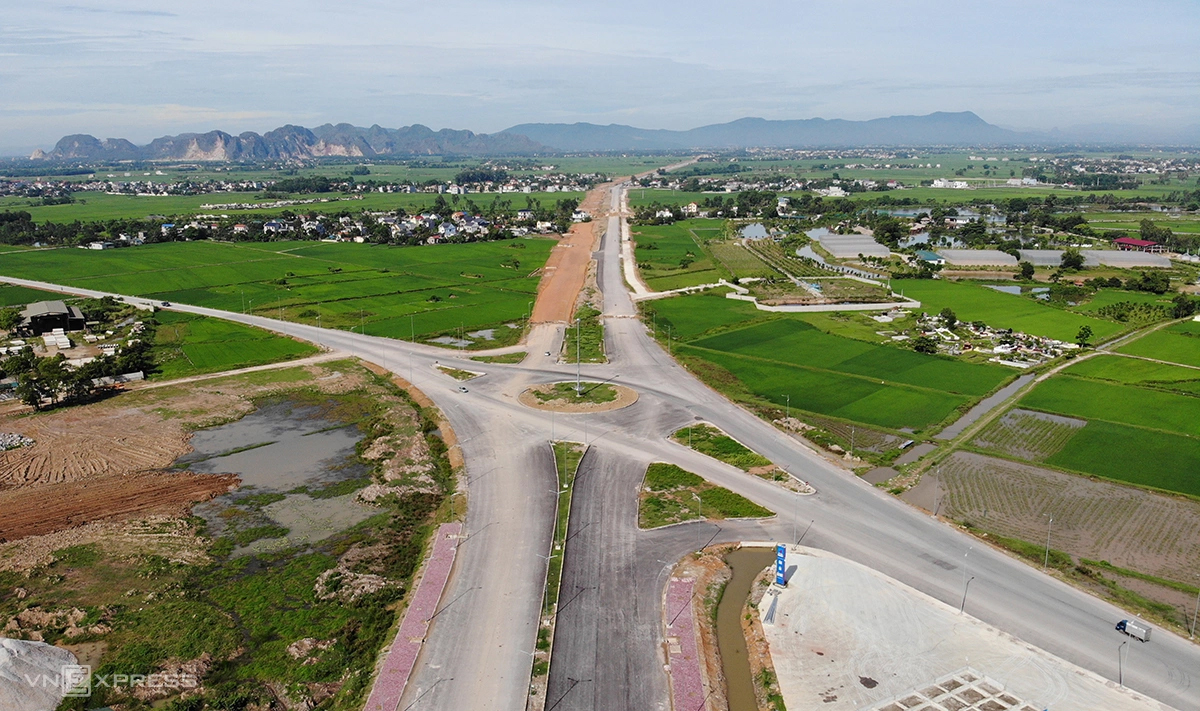 |
The Dong Quang ward area, where the north-south high-speed railway is planned to pass through. Photo: Le Hoang |
The Dong Quang ward area, where the north-south high-speed railway is planned to pass through. Photo: Le Hoang
Viet reported one resettlement area is complete, eight are undergoing site clearance, and 28 are in detailed planning or community consultation stages. Thanh Hoa's UBND requires each affected commune and ward to approve at least one resettlement area for construction by 19/8 to ensure timely site handover.
Thanh Hoa aims to hand over the site to the contractor by December 2026 and complete site clearance in Quarter I of 2027. Infrastructure in the resettlement areas must be finished by September 2026.
According to Thanh Hoa's UBND leaders, funding is a major challenge. As the medium-term public investment plan for 2021-2025 is fully allocated, the province has requested an advance from the central budget to build resettlement area infrastructure, to be repaid when the project receives official funding.
The National Assembly approved the north-south high-speed railway project in November 2024, with an initial estimated cost of about 1.7 quadrillion VND (67 billion USD). The 1,541 km, 1,435 mm gauge line is designed for speeds of 350 km/h. It will include 23 passenger stations and five freight stations, passing through 20 provinces and cities from Ngoc Hoi (Hanoi) to Thu Thiem (TP HCM). In addition to public investment, the National Assembly has permitted public-private partnerships (PPP) or business investment for the project.
Le Hoang






